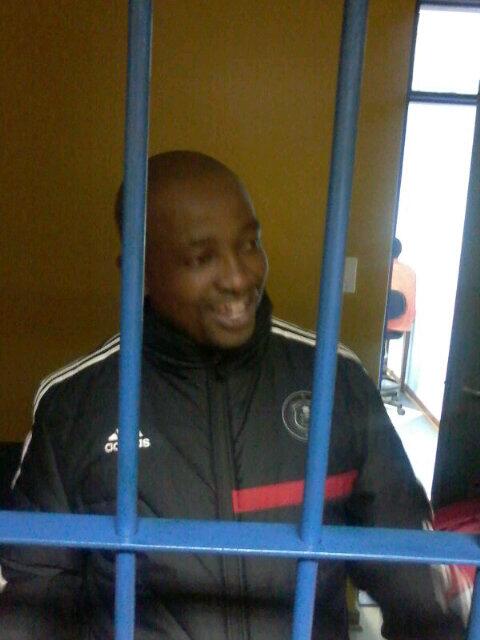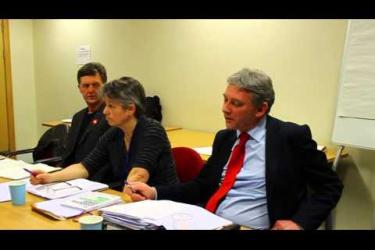Kiev escalates threats against eastern Ukraine, NATO threatens Russia

Pro-autonomy demonstration in Donetsk, April 8, 2014.

Steve Ellner.
[English at http://links.org.au/node/3817.]
Professor Evaristo Marcano Aporrea.org için Steve Ellner ile görüştü; İngilizceye çeviren Steve Ellner, Türkçeye çeviren Işık Barış Fidaner
22 Nisan 2014′te Links International Journal of Socialist Renewal‘da yayınlandı.
Steve Ellner ile görüşmemin çeşitli zamanlarında, sorularıma karşılık sunduğu açıklamaları benimsedim. En çok benimsediğim şey olan Nicos Poulantzas’ın geliştirdiği devlet fikrinde verili bir sınıfın nesnesi olmanın yanısıra ve bunun ötesinde devlet ulusun toplumsal dinamiğini içine alıp yansıtan bir tür ayna olarak kavranmakta. Bu kavrayışa göre devlet her bir toplumsal kuvveti mobilize etme kapasitelerine uygun olarak büyüyüp değişen bir kuvvetler ilişkisi. Bu tez Venezuela’da gerçekleşmekte olan mevcut süreç bağlamında çok pratik anlamlara gelmekte.
South Africa: 20 years on, ‘very good story’ of ANC ‘social democracy’ needs tough questioning

South Africa experiences thousands of strikes, protests and confrontation
Portugal: 40 years after the Carnation Revolution

By Jorge Costa
China: 48,000 Adidas, Nike, Timberland strikers need your solidarity

The strike at the Yue Yuen shoe factory in Dongguan, China, keeps growing: now 48,000 workers have joined.
Swaziland: COSATU condemns arrest of PUDEMO secretary general

People's United Democratic Movement (PUDEMO) general secretary Mlungisi Makhanya in jail for wearing his party's T-shirt.
Two reviews: ‘Confronting Injustice: Social Activism in the Age of Individualism’

Review by John Riddell

Scotland: Trade unionists debate independence, 'yes' gets the nod
France: Jean-Luc Mélenchon on the left after the March municipal elections
To improve the resolution of the subtitles, please press play, then click on the small "cog" in the right-hand bottom corner and change quality to 360p or higher.
